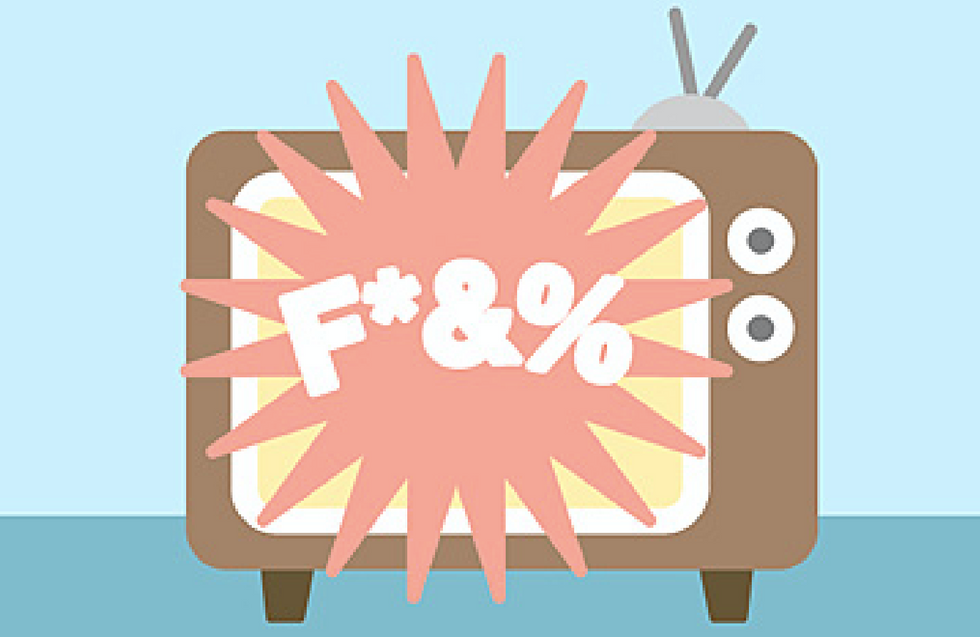Have you ever been in a heated argument with someone and they suddenly drop the F-bomb on you? As soon as that one word is said, the argument immediately takes a turn for the worst because now you are no longer angry about the topic of the argument, but you are angry that someone had the nerve to speak to you in such a way. I find it particularly amazing that a single word could evoke such emotions. An F-bomb, along with its cousin words $!*t, @*$, #%^!! (you get the gist of it) are like the ticking time bombs of the English language. Now I'm not here to justify or judge cursing in anyway. I simply aim to propose a possibly controversial question: Why the bleep do we give cursing so much bleeping power?
Growing up, I was exposed to two very different views on cursing. I have a parent who completely despises the idea of a curse-friendly vocabulary, calling the forbidden words "dirty" and "ugly". On the complete opposite side of the spectrum is my parent who sees no harm in using a curse word here and there, or in every sentence. The funny thing is, no matter their perspective on cursing, neither of them would approve of that kind of language from my lips. I understand that it is only a matter of respect and, consequently, would never dream of uttering a single curse word while in their presence. At the same time, I still question why it would be so awful for me to let one slip if I were to stub my toe or drop a glass. It is just a word, isn't it?
Words can be extremely powerful. Being a writer, I am very much aware of that. However, I still cannot understand the power of a curse word. When certain letters are placed in a distinct order, the word is formed and becomes a force that can easily explode into an argument just as quickly as it can end one. Yet, take away a few letters and replace them with symbols such as @ and #, and it becomes okay. Replace a person's voice with a high pitched beeping sound and it is like the word was never said. Why? We all still know what the symbols are meant to spell and how the bleep had originally sounded. Somehow we are led to believe that just because we can neither see nor hear it, it loses its strength and meaning. If that is true, then why not say you love someone less when you can't hear the words "I love you".
I suppose our ongoing dispute with curse words is due to the way we were raised. Children should not curse. Cursing is bad and it's disrespectful. Adults, on the other hand, can curse. For that, we can say that cursing is equal to the consumption of alcohol; it's an adult thing. Like all "adult things", it will make its way to teenagers. Still being a teen myself (although I'd like to think I'm an adult), I am no stranger to how often the average teen will curse. However, most of the time, they aren't cursing to pick a fight or sound angry. They are just talking. That big, bad curse word that five-year-old self you used to become a tattletale for is now just a word you say when joking around with your friends. I've noticed that adults also use curse words as if they were always meant to be harmless. I can see the elders cringing and shaking their heads in disappointment when they hear the extensive vocabulary being used so carelessly.
Like I have already mentioned, I am neither for nor against the use of curse words. I simply don't understand them. We can speak them, but can't see or hear them? It can be used as an insult and equally as a friendly greeting? How can it be so powerful and meaningless at the same time? I won't pretend to know it all. Instead, I shall leave it up to you to determine what the f*&% cursing is really about!





















